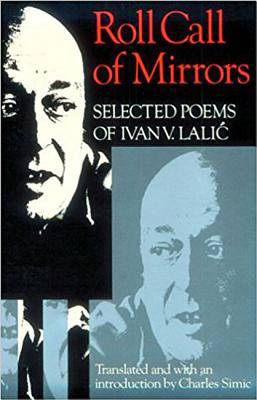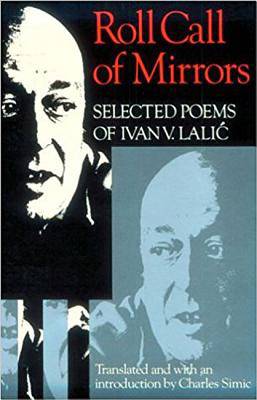
- Afhalen na 1 uur in een winkel met voorraad
- Gratis thuislevering in België vanaf € 30
- Ruim aanbod met 7 miljoen producten
- Afhalen na 1 uur in een winkel met voorraad
- Gratis thuislevering in België vanaf € 30
- Ruim aanbod met 7 miljoen producten
Zoeken
Omschrijving
A postwar Serbian poet captures the spirit of the classical in his newly translated book of poems.
Ivan V. Lalic is one of the most important Serbian poets of the postwar generation. In Roll Call of Mirrors the translator Charles Simic, a native Yugoslavian, captures these poems in Lalic's own idiom, He retains their spare beauty, from the lyrical intensity of the early poems - by a poet destined to burn - to his later love of sonnets, to his most recent =, more meditative work on what geometry dreams, and on the art of the poet (standing before the mirror, fearless/ Of the returning image).
Although Lalic is part of a generation of Yugoslavian poets considered modernist, the spirit of his poetry is classical, calling up Roman triumphal arches, Orpheus descending into Hades, Lazarus rising from the tomb, and Byzantine warriors with their breastplates of bronze. Byzantium is, for Lalic, both the historical city, spiritual and also the mythical home from which we all have been exiled. According to Simic, in Lalic's poetry the historical and the mythical are in dialogue. Like the icon or the fresco, his poems begin with metaphors that, through meditation, reflect and give meaning to identity.
Ivan V. Lalic is one of the most important Serbian poets of the postwar generation. In Roll Call of Mirrors the translator Charles Simic, a native Yugoslavian, captures these poems in Lalic's own idiom, He retains their spare beauty, from the lyrical intensity of the early poems - by a poet destined to burn - to his later love of sonnets, to his most recent =, more meditative work on what geometry dreams, and on the art of the poet (standing before the mirror, fearless/ Of the returning image).
Although Lalic is part of a generation of Yugoslavian poets considered modernist, the spirit of his poetry is classical, calling up Roman triumphal arches, Orpheus descending into Hades, Lazarus rising from the tomb, and Byzantine warriors with their breastplates of bronze. Byzantium is, for Lalic, both the historical city, spiritual and also the mythical home from which we all have been exiled. According to Simic, in Lalic's poetry the historical and the mythical are in dialogue. Like the icon or the fresco, his poems begin with metaphors that, through meditation, reflect and give meaning to identity.
Specificaties
Betrokkenen
- Auteur(s):
- Vertaler(s):
- Uitgeverij:
Inhoud
- Aantal bladzijden:
- 80
- Taal:
- Engels
- Reeks:
Eigenschappen
- Productcode (EAN):
- 9780819511522
- Verschijningsdatum:
- 1/06/1988
- Uitvoering:
- Paperback
- Formaat:
- Trade paperback (VS)
- Afmetingen:
- 141 mm x 204 mm
- Gewicht:
- 117 g

Alleen bij Standaard Boekhandel
+ 33 punten op je klantenkaart van Standaard Boekhandel
Beoordelingen
We publiceren alleen reviews die voldoen aan de voorwaarden voor reviews. Bekijk onze voorwaarden voor reviews.








